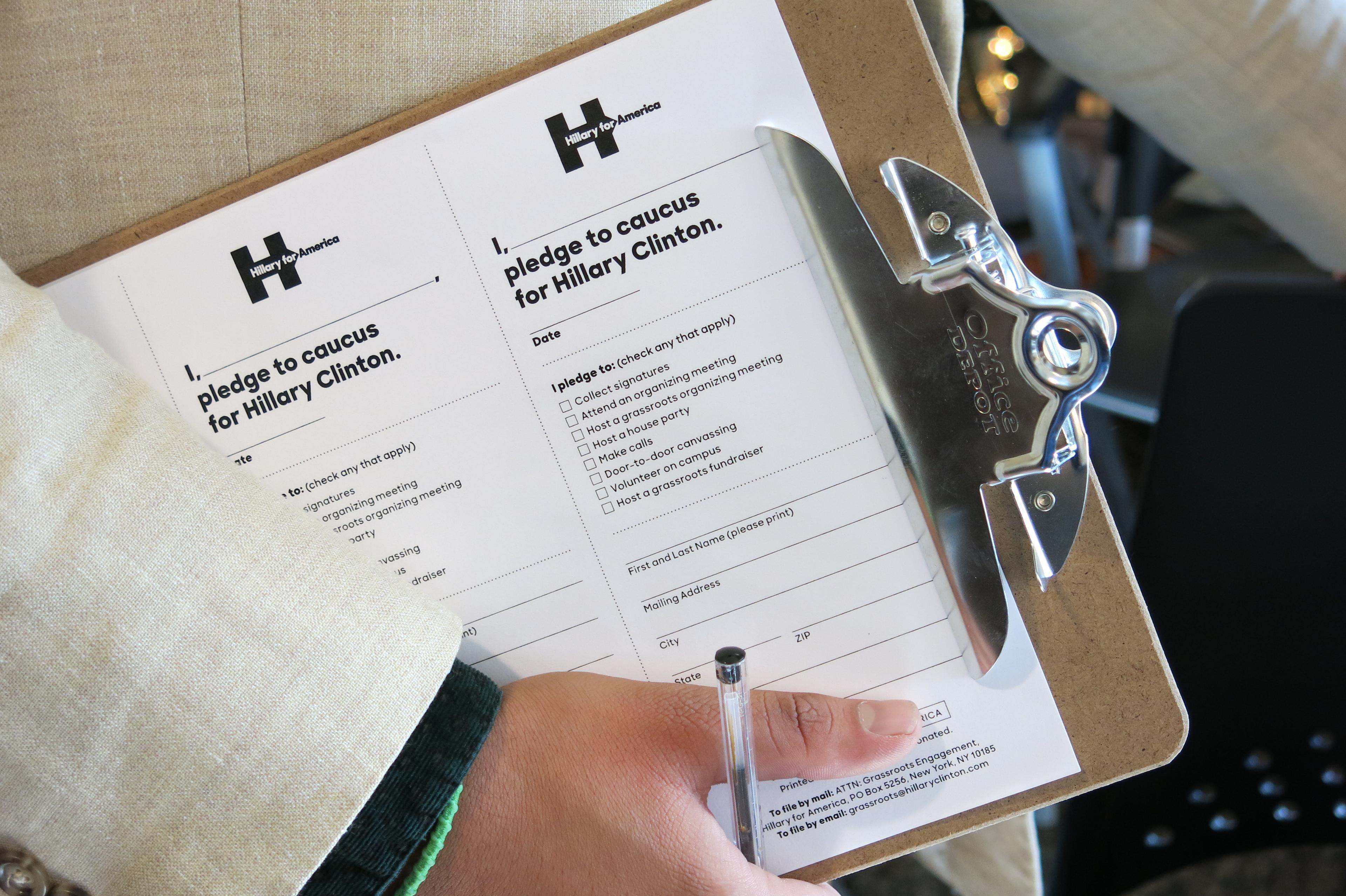
It's 9 a.m. at the public library in Denver's Five Points neighborhood and former Mayor Wellington Webb is warming up a slightly sleepy crowd for a Hillary Clinton campaign event.
Like lots of campaign events, you'll find politicians and a big pile of donation envelopes. But what Clinton's allies really want from attendees is a less tangible form of support -- their participation in the caucus process.
"We need to make sure that you call your neighbors, call your friends, that everybody get there that night," former state Sen. Gloria Travis Tanner tells the crowd.
If you're as clueless about caucuses as the people these volunteers are targeting -- who can blame you? Only a tiny fraction of registered voters ever attend a caucus. Here's the quick and dirty on how it works:
On March 1, both major parties will convene around 3,000 precinct caucuses -- little neighborhood gatherings, where people elect delegates to represent them at county caucuses.
County caucuses lead to congressional district caucuses, which lead to the statewide assembly. At each step the pool of delegates gets winnowed down, like a game of political Survivor. Those who make through without being voted off the island get to attend the national party conference and finally vote for a nominee.

Even though the caucuses are still three months away, the Clinton campaign is hard at work trying to lock up delegates. It's been getting supporters to sign "caucus commitment cards" since last spring.
And Tuesday, Clinton herself is visiting to talk up the importance of participating on March 1. That's Super Tuesday, when 11 states will hold Democratic caucuses or primaries.
Numerically, Colorado isn't a big player. It only awards 7 percent of all the delegates up for grabs that day. But there's a symbolic value to winning a caucus state.
"I think it sends a message that you can organize, you can win, you can compete, even in areas that take more time and energy," said Bradley Komar, who runs Clinton's Colorado campaign.
That's a message Clinton failed to send eight years ago, when she lost nearly every caucus state. Back then, Clinton took the caucus states for granted, says University of Denver Political Science chair Seth Masket.
"There was a real sense in 2008 that one of the reasons that Hillary Clinton ended up losing to Barack Obama was that she really under-prioritized the caucus states, like Colorado," Masket said. "Barack Obama was very good at turning out passionate young activists and ended up turning out a lot of delegates."
Colorado fans of Sen. Bernie Sanders are hoping to repeat that history next March. Though the Sanders campaign doesn't have any paid staff in the state yet, its volunteers have been keeping busy.
According to Colorado organizers, the Sanders' campaign has given them access to its professional voter canvassing database, the first all-volunteer state organization to earn that privilege. And they're starting to hold regular caucus trainings throughout the Denver metro area.

Every Wednesday night, Sanders supporters take over the Skylark Lounge in Denver to discuss delegate counts and the finer points of voter outreach.
Training is especially important for this campaign because it's not just hoping to mobilize first-time caucus-goers, but first-time Democrats.
"Colorado is basically 30 to 35 percent registered independent voters. And so that's our target right now," says Sanders organizer Robert Mitton. And he knows that target well -- he was registered with the Green Party until this summer.
"Whether we want to be a Democrat or not, we have to be a Democrat in order to vote for Bernie Sanders. So we're trying to explain to people we need to change our affiliation," Mitton said.
Four months from now, they may know if it worked.
Yet as both Democratic front-runners vie for votes in Colorado, it's a different story for Republicans. On Wednesday, CPR News has the story of GOP caucus strategy in the state.









